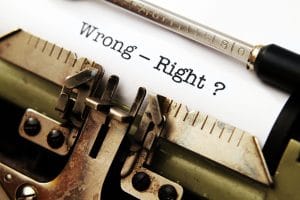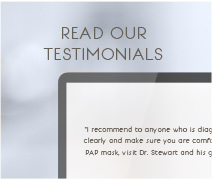 When the topic of sleep apnea comes up, our Livonia, MI team is aware that it’s not always the easiest of topics for individuals to understand right off the bat. It’s not necessarily that it’s a confusing topic but that it is certainly one patients are not informed about or that they make an assumption about here and there. To ensure you are clear on the details behind this sleep disorder (so you receive the sleep apnea treatment you need, if this issue is impacting your sleep), we’re here to help! Consider common misconceptions and the truth behind them, so you know just what’s what!
When the topic of sleep apnea comes up, our Livonia, MI team is aware that it’s not always the easiest of topics for individuals to understand right off the bat. It’s not necessarily that it’s a confusing topic but that it is certainly one patients are not informed about or that they make an assumption about here and there. To ensure you are clear on the details behind this sleep disorder (so you receive the sleep apnea treatment you need, if this issue is impacting your sleep), we’re here to help! Consider common misconceptions and the truth behind them, so you know just what’s what!
You Think It’s About Not Falling Asleep
You may initially think that sleep apnea treatment is for people who cannot fall asleep at night. This makes sense, of course, because when you hear about sleep disorders, you immediately think about the inability to drift off into dreamland. However, this isn’t the case! Instead, sleep apnea is an issue that interrupts your sleep cycle. You fall asleep but your throat tissues collapse, you stop breathing, and you wake up. It’s an issue that makes it so you cannot remain asleep.
You Think It’s The Same As Loud Snoring
You might confuse sleep apnea with loud snoring. This is often become extreme snoring is a symptom of (or happens in conjunction with) sleep apnea. However, these are not identical. Snoring happens when those tissues in your throat touch because they are partially relaxed. Sleep apnea happens when those tissues are caved in on one another, fully blocking your airways, so you’re not making a loud noise but are, instead, simply not breathing. A very good reason, of course, to consider sleep apnea treatment!
You’re Confusing OSA With CSA
You might think that the sleep apnea we treat, which is called obstructive sleep apnea (OSA) is the same as central sleep apnea (CSA). However, these are not the same. We can physically help keep your airways open for OSA, as this is an issue with your muscles and soft tissues. However, CSA is treatable only by a neurologist because it is related to signals in your brain that are not working correctly.
You Think You Need Medication For Sleeping
Actually, you don’t need medication. You need an oral appliance or other physical measure to simply help keep airways from closing, as you sleep.
Get The Answers About Sleep Apnea
When you are making some assumptions about sleep apnea but realize you have never spoken with a professional about the details, our team invites you to come in for a consultation for a quick, factual education! James Stewart, DDS, and our team serve patients from Livonia, MI and the surrounding communities. To schedule a consultation, call our office today at (734) 425-4400.






